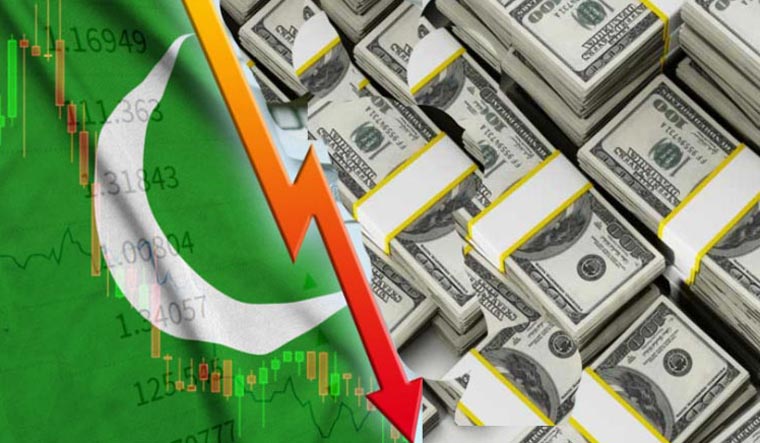A crucial session of Pakistan's parliament was adjourned on Friday without a vote on a key tax bill amidst criticism from the government's allies against its move to impose new taxes to get a much-needed bailout from the IMF for the cash-strapped country.
The parliament failed to pass the tax-loaded Finance (Supplementary) Bill, 2023, introduced by Finance Minister Ishaq Dar separately on Wednesday, to extract Rs 170 billion from the people through new taxes and increase in electricity and gas prices, for fulfilling the conditions set by the International Monetary Fund (IMF) to release $1.1 billion of the $7 billion bailout deal agreed to in 2019.
The National Assembly, the lower house having control over all money bills, was adjourned till Monday evening after the government was criticised by its allies for burdening the masses with new taxes.
Lawmaker Salahuddin of Muttahida Qaumi Movement-Pakistan (MQM-P) accused the government of not being serious about tackling the problems faced by the country.
“The rupee has depreciated; petrol, electricity and gas were already expensive. These bombs had already been dropped on the public. And then our finance minister dropped another bomb on February 15,” he said.
Similarly, Qadir Khan Mandokhail of the Pakistan Peoples Party (PPP) suggested the government decrease the burden on the poor and instead hike taxes on luxury cars and houses.
MQM-P and PPP are both allies of the coalition government led by Prime Minister Shehbaz Sharif of the Pakistan Muslim League-Nawaz (PML-N).
The government had already implemented a bulk of new taxes worth Rs 115 billion from February 14 through special orders. The remaining Rs 55 billion of the Rs 170 billion would be raised through the finance bill.
The Federal Board of Revenue (FBR) enhanced a federal excise duty on locally manufactured cigarettes, which would generate up to Rs 60 billion in taxes on tobacco products, and the Finance Division issued a notification increasing the general sales tax by one per cent to 18 per cent to raise another Rs 55 billion.
The remaining amount of Rs 55 billion to fulfil the Rs 170 billion IMF demand would be collected through an increase in excise duty on airline tickets and sugary drinks and an increase in withholding tax rates through the Finance (Supplementary) Bill 2023.
Pakistan held ten days of marathon talks with IMF officials in Islamabad from January 31 to February 9 but failed to reach a deal, as the fund demanded prior actions by the debt-struck country before signing any agreement to release $1.1 billion of the $7 billion deal agreed to in 2019.
The two sides are now holding talks in virtual settings to finalise a deal to provide the much-needed funds to shore up the foreign exchange, which is just over $3 billion.
Pakistan is struggling with instability stemming from an economic crisis, last summer's devastating floods, and a recent surge in terror attacks across the country.



